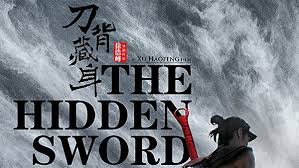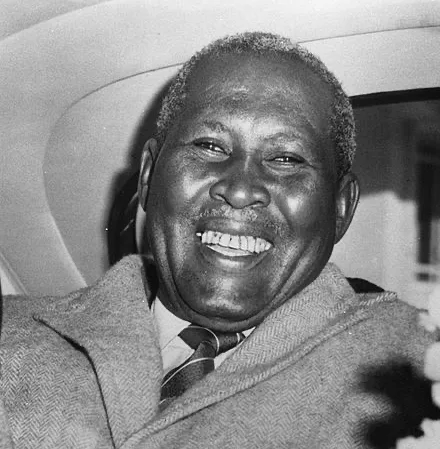By Our Correspondent
Storytelling, creativity, artistry, and self-expression are integral elements of the entertainment industry that plays a major role in shaping the way people think and act. The entertainment industry has long been used for its potential in crafting propaganda material and influencing the masses through subliminal messaging – and more often than not, the direct portrayal of falsehoods.
However, the freedom to exercise artistic expression is a rarity in the authoritarian regime of the Chinese Communist Party (CCP) that has strict censors installed in every aspect of life for its citizens. The Chinese government also has its own propaganda wing that is responsible for the creation of ‘state-approved’ media for its people.
China’s box-office take has been on a decline and the major culprit is its draconian censorship laws. According to the data from the National Film Bureau, domestic earnings in 2020, fell at a staggering total of 20.4 billion Yuan ($3.1 billion) as opposed to the 2019 total of 64 billion Yuan ($9.9 billion).
Despite the reopening of movie-theatres after months of closure, the Chinese box office profitability could not rise to the predicted fortunes. The only reason for the overtaking of the US movie market was the coronavirus pandemic which bestowed itself as the saving grace for the Chinese film industry as Hollywood rattled on under the impact of the pandemic.
China’s stance on censorship has only been tightened as the ruling Communist Party has tried to strangulate growing dissent in the mainland as well as in occupied lands like Tibet and East Turkistan.
Themes that may be politically sensitive to the party have been put under intense scrutiny or have been banned completely. Apart from political themes, China is also cracking down on ‘vulgar or pornographic content’. Dozens of Chinese productions were blocked from screenings over last-minute censorship tussles.
The 2017 martial-arts extravaganza film, ‘The Hidden Sword’ was scrapped from release as it hurt the sentiments of the CCP. The movie is set in the 1930s and depicts the story of a military officer who leads Chinese soldiers to fight Japanese invaders.
The Chinese soldiers, however, represented the Kuomintang Party which was pushed back into Taiwan after a civil war with the Communist Party and, therefore, was not permissible according to new censorship laws.
Another film which also depicted Chinese soldiers as part of the Kuomintang, ‘The Eight Hundred’, was yanked out of the Shanghai International Film Festival in June 2019 and then had its theatrical release cancelled with no reasons stated. The film, however, did manage to secure a release in 2020. Two other Chinese productions failed to screen at the Berlin Film Festival in 2019 citing ‘technical reasons’- ‘One Second’, directed by Zhang Yimou, portrayed the turmoil of the Cultural Revolution in the 1960s.
Apart from stringent restrictions on domestic productions, China also has a tough policy for international films with an unofficial cap of 34 imported foreign films per year. Beijing’s censors have influenced Hollywood as well as the global filmmaking industry.
As China has expanded its role as a global power house, trade partner, sovereign investor and cultural influence, CCP’s approach to censorship has penetrated itself worldwide. Global brands have been forced to retract and apologize for publication of content deemed as ‘sensitive’ for fear of retaliation from the CCP.
Beijing’s economic clout has led to self-censorship from global players in the field through voluntary internalization of such censorships as a prerequisite for carrying out business with China. Xi Jinping has used soft power to portray China in the best spirits.
Filmmaking professionals are forced to avoid taking creative decisions that may antagonize CCP officials and risk losing access to the Chinese market thereafter. Many film studios have also chosen to directly invite Chinese government censors onto film sets as advisors for compliance with Beijing’s diktat.
Since Xi has come to power, the provincial and central television channels are dominated with shows on revolutionary leaders, Mao Zedong, Deng Xiaoping, CCP revolutionary ideals, anti-Japanese and anti-Kuomintang propaganda.
The youth are being fed CCP propaganda as part of a digital education campaign, even though the new age talent is thirsty to display creative ideas, they are forced to portray party ideology in cinematic creations to please the censor officials.
The success of Bollywood movies in China in recent years is a point to prove that the Chinese audience is hungry for light, family entertainment which could be related to the common lives of common people, and which the Chinese audience fail to get from their own production houses.
China’s brutal censorship is killing its home-grown entertainment industry. The strict pre-publication review by the State with criminalization of various creative endeavours has only led to the suffocation of the filmmaking process.
Rife with cheap knock-offs of popular foreign films, the Chinese movie industry barely offers any original content, as it plays safe to escape entangled into social issues. Filmmakers are also discouraged from spending their creative energy on the bleak future of an industry that threatens their very existence as the government serves up year-long jail terms for ‘critical speech’ and ‘dissent’. With the lacklustre motivation, plagiarized content is aplenty.
The Chinese government works tirelessly to ensure that only a state-approved picture of the regime is painted in the minds and hearts of not just its own citizens, but also amongst the international community.
Chinese censors are playing an important role in determining content that is released worldwide and the risk that this poses- coupled with the expansionist policies in action- is alarming to say the least.






